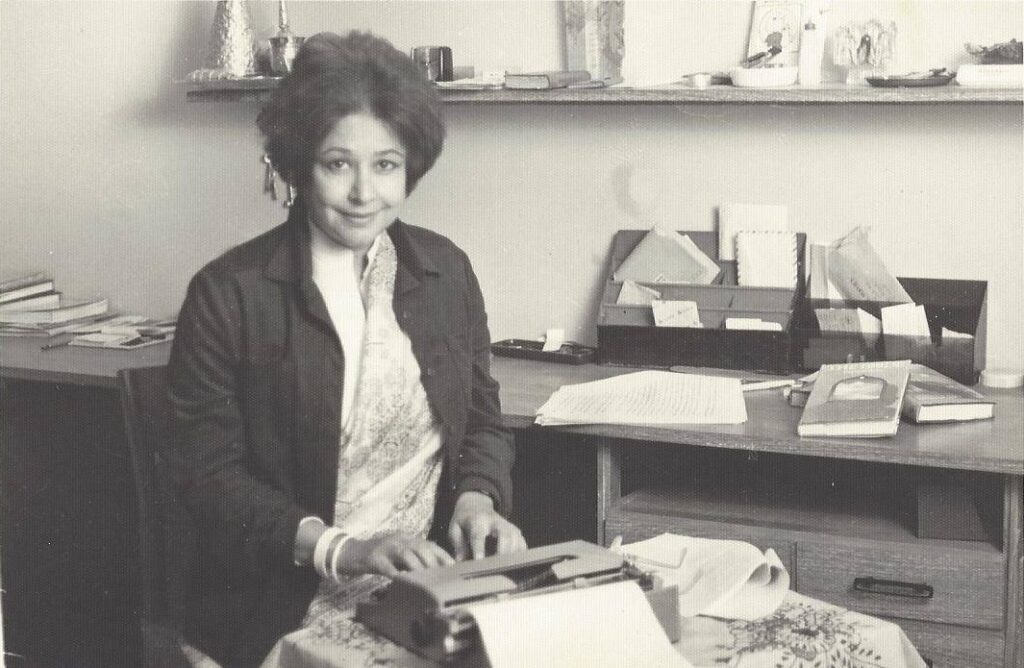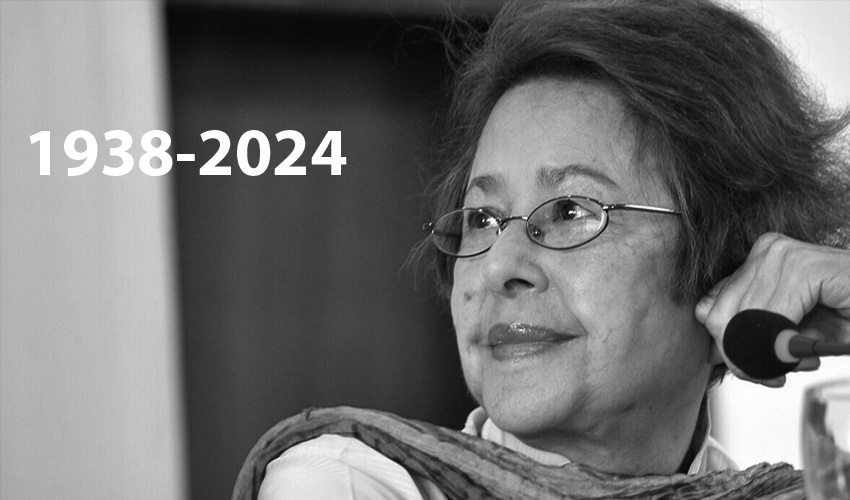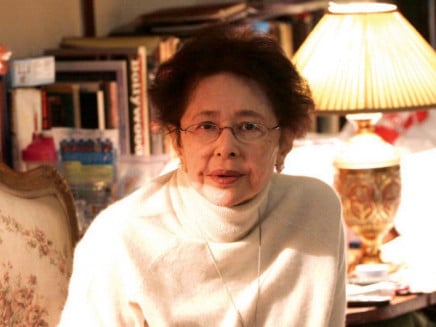Bapsi Sidhwa - the celebrated Pakistani author whose works have left an indelible mark on global literature - passed away on Wednesday at the age of 86 in Houston, Texas.
Known for her poignant storytelling and deep cultural insights, Sidhwa’s death is a significant loss to the literary world, especially to the literary communities of Pakistan, India, and the global Zoroastrian diaspora.
Sidhwa’s literary legacy is best exemplified by her groundbreaking novel Ice Candy Man (1991), which vividly depicts the horrors and chaos of the 1947 Partition of the Indian subcontinent. The novel, which was later adapted into the critically acclaimed film Earth (1998) by Indo-Canadian director Deepa Mehta, brought her widespread recognition.
The story, set against the backdrop of partition violence, centers around a young girl affected by polio, a theme reflective of Sidhwa’s own childhood experiences.
Born in Karachi on August 11, 1938, Sidhwa’s family relocated to Lahore when she was just a few months old. Her early life was marked by adversity, including contracting polio at the age of two, a challenge that would shape her outlook on life. The pain and resilience born from her illness would later permeate her writing, infusing her characters with a deep sense of humanity.
Her most notable works, such as Cracking India (1991), The Crow Eaters (1978), The Bride (1982), An American Brat (1993), and City of Sin and Splendour: Writings on Lahore (2006), reflect the cultural and historical complexities of South Asia. Cracking India, which drew upon her memories of Partition, earned her critical acclaim and recognition as one of the finest voices in contemporary South Asian literature.
Sidhwa’s career was not confined to the written word; she was a powerful cultural ambassador, bridging the gap between Eastern and Western sensibilities. Her works, deeply rooted in the history and struggles of the subcontinent, resonated with readers across the globe. She was honored with Pakistan’s highest national honor, the Sitara-i-Imtiaz, in 1991, and was awarded the Mondello Prize for Foreign Authors in 2007. Sidhwa was also inducted into the Zoroastrian Hall of Fame, solidifying her position as a global literary icon.
A documentary titled Bapsi: Silences of My Life was released in October 2022 by the Citizens Archive of Pakistan, offering an intimate portrait of her life as a writer and her experiences during the partition of India. Sidhwa’s deep connection to the Zoroastrian community was reflected in her literary works and in the establishment of the Bapsi Sidhwa Literary Prize by the Zoroastrian Association of Houston and FEZANA, in recognition of her pioneering role as the first internationally recognized Zoroastrian author.
Sidhwa’s generosity extended beyond her literary achievements. A close friend recalls how, in the 1970s, she graciously offered her garage as a studio space to help an artist launch their career. Her kindness, empathy, and willingness to support others were central to her personality.
She is survived by her three children: Mohur, Koko, and Parizad, and her extensive body of work, which will continue to inspire future generations. Prayers for her departed soul are scheduled to be held at the Bhandara Agiary in Houston.




























